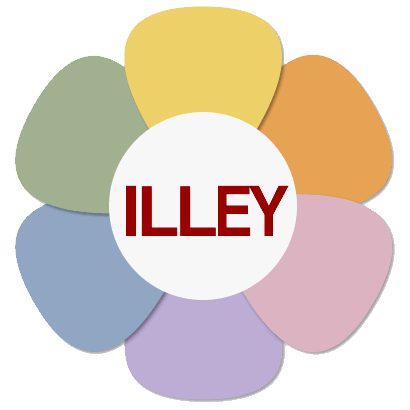ILLEY – Une éducation aux langues inspirante dès le plus jeune âge
 ILLEY, issu du programme 2016-2019 du CELV « Les langues au cœur des apprentissages », définit les principes sur lesquels repose un apprentissage des langues inspirant dans un cadre éducatif pour les enfants âgés de 3 à 12 ans. Ces principes (l'apprentissage des langues est holistique, s'appuie sur le répertoire linguistique existant de l'enfant, est significatif, actif, continu et intégré) – placent l'enfant au cœur du processus d'apprentissage et en font un·e agent·e actif·ve de son propre apprentissage des langues. ILLEY encourage les enseignant·es et les éducateur·rices à accueillir toutes les langues dans leur classe, quel que soit leur statut dans le système éducatif – il peut s'agir de la (des) langue(s) de scolarisation, de langues supplémentaires enseignées dans le cadre du programme scolaire, mais aussi de langues communautaires ou de langues parlées à la maison.
ILLEY, issu du programme 2016-2019 du CELV « Les langues au cœur des apprentissages », définit les principes sur lesquels repose un apprentissage des langues inspirant dans un cadre éducatif pour les enfants âgés de 3 à 12 ans. Ces principes (l'apprentissage des langues est holistique, s'appuie sur le répertoire linguistique existant de l'enfant, est significatif, actif, continu et intégré) – placent l'enfant au cœur du processus d'apprentissage et en font un·e agent·e actif·ve de son propre apprentissage des langues. ILLEY encourage les enseignant·es et les éducateur·rices à accueillir toutes les langues dans leur classe, quel que soit leur statut dans le système éducatif – il peut s'agir de la (des) langue(s) de scolarisation, de langues supplémentaires enseignées dans le cadre du programme scolaire, mais aussi de langues communautaires ou de langues parlées à la maison.
ILLEY reconnaît également que chaque contexte – qu'il soit (largement) monolingue ou totalement multilingue – est différent et que les attitudes de la communauté et de la société influencent grandement la perception des langues à la fois dans le système éducatif et en dehors. Il incite les enseignant·es et les éducateur·rices à promouvoir l'inclusion et la diversité.